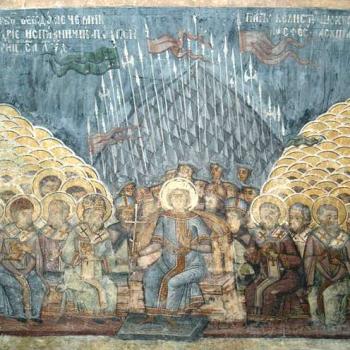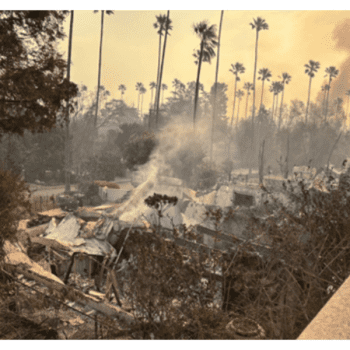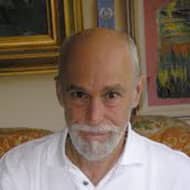Earlier this year, Venerable Thich Nhat Hanh accepted an invitation from His Holiness Pope Francis to visit the Vatican, in support of a global initiative to end slavery. Having experienced a severe brain hemorrhage since the invitation, a delegation of twenty-two monks and nuns of his core community are in Rome today, realizing his wish.
Many heroes are active this very moment. Visible and invisible. Known and anonymous. Actually, we all encounter heroes every day, over the phone, on the street, at the grocery store, on the bus, everywhere. Yet, some human beings live with such intensity of meaning and nobility, they elevate all who come in contact with their presence. Venerable Thich Nhat Hanh is such a human being in my life. Maybe yours, too.
Venerable Thich Nhat Hanh's 2014 accomplishments include a retranslation of the Heart Sutra, Buddhism's pithiest nondualist teaching. Earlier, this summer, he led a summer retreat dedicated to the topic "What happens when we die?" (Hint: what happens when we live?) But I cannot separate any one year's contributions from his immeasurable living legacy—pacifism, engaged Buddhism, interfaith, mindfulness, poetry, and more. Please note, these aren't separate, like ice cubes in a tray, but, rather, all coined from a common ore.
America's tragic war in Vietnam was one of the predisposing events of my generation. Many knew first of Thich Nhat Hanh then, as a pacifist, not taking sides. "Our enemy is not man," he wrote. "If we kill man, with whom shall we live?" But he didn't he sit by, contemplating nirvana. Besides seeking reconciliation of North and South, he responded to the plight of rural folk beyond monastery walls—enlisting others to join him in establishing medical care, rebuilding villages, starting schools. Such selfless action in society exemplified what he termed "engaged Buddhism." Whatever area of suffering engages your attention—poverty, housing, war, racism, sexism, the ecosystem—your path of practice has already begun. It's an invitation to not turn away from suffering, but, rather, look deeper, to see a common source of suffering, and work to heal and transform its roots in one's own life and the lives of others, as one.
Another colossal hero whose life was touched by Thich Nhat Hanh during this time was Martin Luther King, Jr. Thich Nhat Hanh helped inform Dr. King's understanding of America's war in Vietnam. In so doing, he also deepened Dr. King's understanding of Eastern spirituality, already nourished by a visit with Gandhi, at the suggestion of his mentor Rev. Howard Thurman.
From a Birmingham jail, Dr. King wrote, "We are caught in an inescapable network of mutuality, tied in a single garment of destiny. Whatever affects one directly, affects all indirectly." We can hear in that Dr. King's eloquent translation of Thich Nhat Hanh's philosophy of interbeing. That word is his innovative neologism for the Buddhist concept of dependent co-arising (Pratītyasamutpāda [Sanskrit]: this is because that is.) How handy to have a word for the profound, even inconceivable, fact of the unimpeded interpenetration of all things. Ultimately, a few well-placed drops of interbeing can dissolve the illusion of our separateness.
As a Jew, I grew up aware that Jesus was Jewish. But I never understood him, or loved him—until Thich Nhat Hanh revealed him to me as living within my own heart. Such teachings are the fruition of Thich Nhat Hanh's studies in comparative religion, formally begun in Princeton. Along with interfaith work, he's an unofficial spokesperson of intrafaith. That is, Theravada and Pure Land and Zen are intertwined in his teachings, which include Avatamsaka, Lotus Sutra, Tantra, and Yogacara schools, as well.
Being known as father of mindfulness in the West may be a bit of a misnomer. In 1975, he'd composed a meditation manual entitled The Miracle of Awakening, but the publisher liked The Miracle of Mindfulness better. In it he teaches mindfulness as energy of the Buddha, going hand-in-hand with the trainings of wisdom and conscious conduct—and a community of practice.
Community is not a part of the Buddha's teachings, it's the entirety of them. Thus I cannot rank Thich Nhat Hanh's building of spiritual community. This was the topic he and Dr. King came back to, time and time again, whenever they met. Dr. King never lived to see his dream of beloved community fulfilled. Fortunately, communities practicing in the Plum Village tradition of Thich Nhat Hanh are global and growing.





